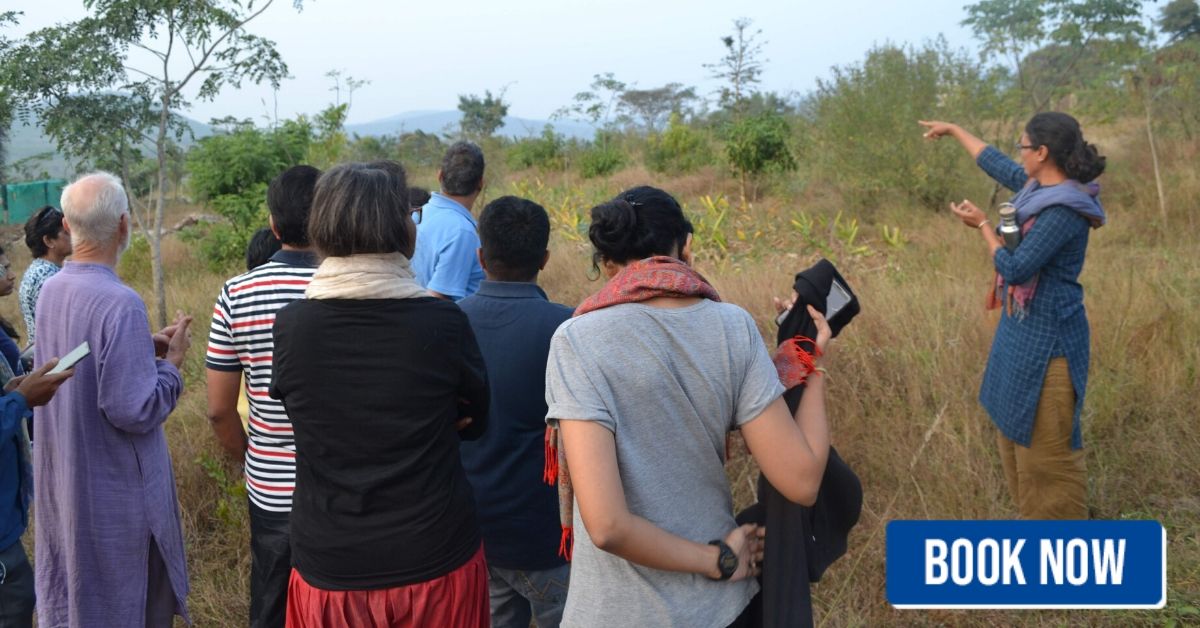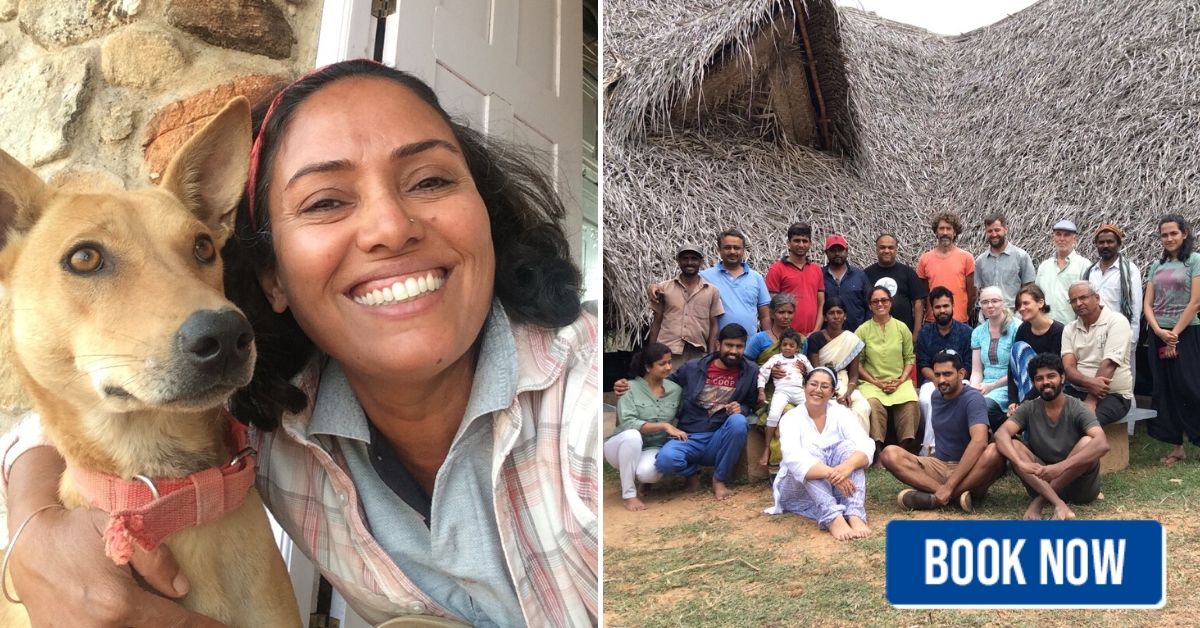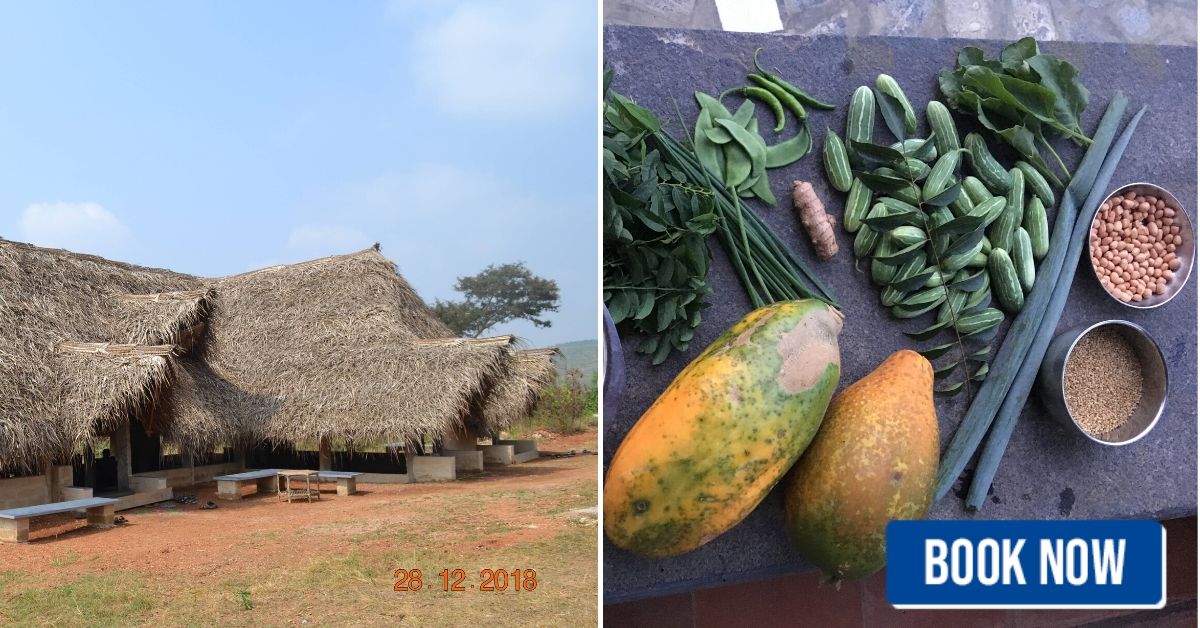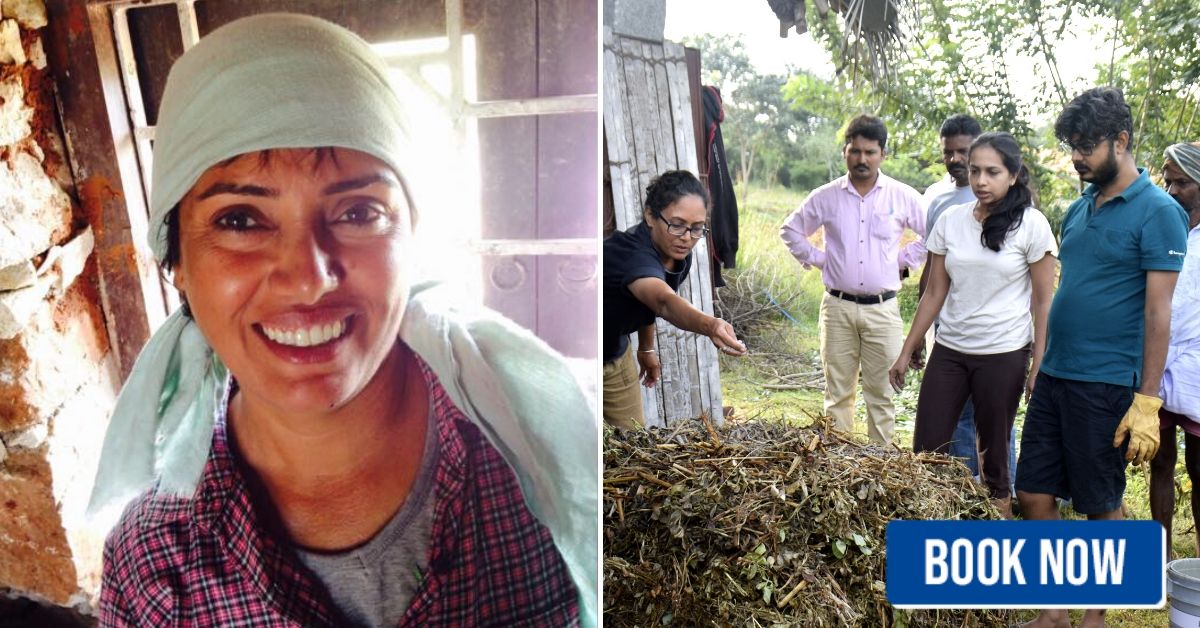Bengaluru, Learn Farming from This Eco-Warrior Who Grew 5000 Plants on Barren Land
It may be hard to imagine that you can be a super farmer. But it can happen! Details here
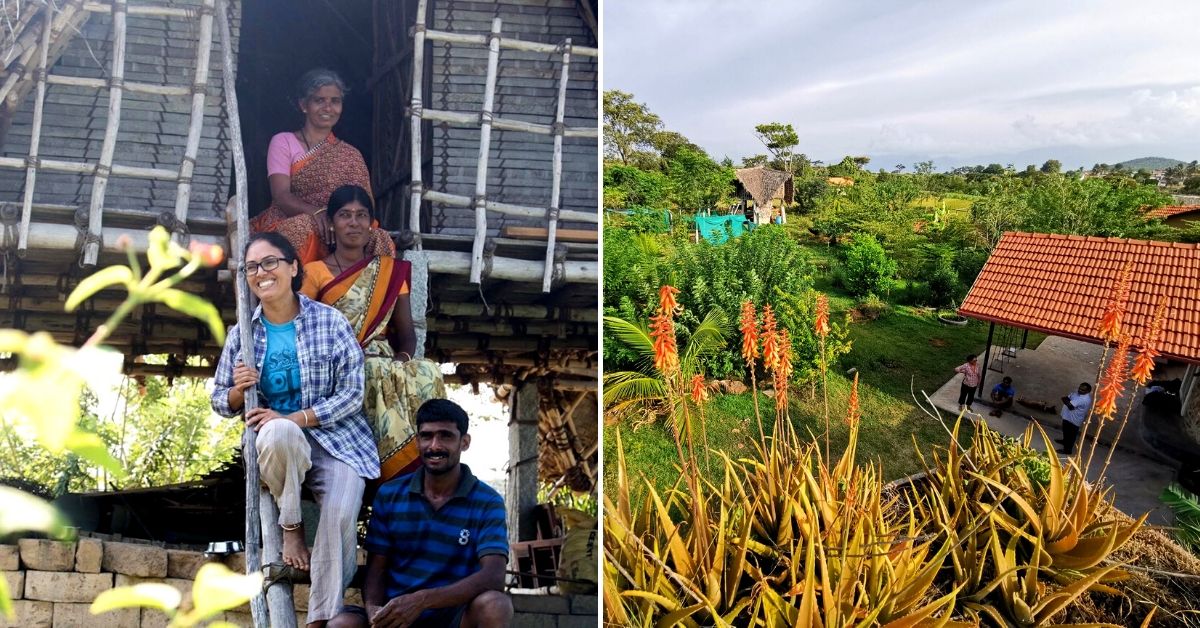
There is a 1.3 acre farm in Karnataka, lush with 20 varieties of food crops—from millet varieties to mustard, sunflowers and even chickpeas. It fulfils 70% of the total food requirements of six people working on the field and participants of workshops that are conducted 4-6 times a year.
Its hard to believe that only five years ago, the 5-acre plot of land was an eroded, barren field when Malvikaa Solanki, the founder of the SwaYYam trust, decided to revive it.
It took Malvikaa and her team a couple of years to undo the damage, but thanks to their efforts, one part of the land has a lush farm with multiple crops, while the other section is thriving with nearly 5000 saplings of 400 species of fruits, bushes, timber, and many more—which was achieved with permaculture.
Amazing, isn’t it?
We agree. And Malvikaa is happy to share her learnings of permaculture over a three-day workshop. Book your seat in advance and make the most of her experience. Click here for further details.
Living the simple life, making a lasting difference
Malvikaa’s journey towards conscious living began in her early years in a village near Bengaluru, which had a considerable influence on her world view and vocation.
“I spent my early years in a village, milking buffaloes, rearing silkworms, sowing paddy, growing food. Later, I moved with my family to the city and went through the ups and downs of life. I worked with non-profits at the grassroots level, specifically with women and children on issues of ecology, environment, livelihood, health and gender. The turning point of my life was working with women on livelihood issues with an NGO called ‘Maya’ as a research scholar on water ecology at IISc, Bengaluru. This experience led me to found SwaYYam in 2011,” is how she summarises her journey.
SwaYYam is much more than an NGO propagating a sustainable lifestyle. They believe that we are at a stage where simple living sustainably will not cut it anymore.
Since the actions of humankind have done more damage to the planet in the last century than ever before, we have to go that much extra to restore the balance.
Explaining this further, the 50-year-old says, “The founding principles of SwaYYam revolve around the restoration of the practices, perspectives which keep us in a harmonious relationship with one another, the Earth… We realised early on that setting up practical examples, building our own knowledge by “doing”, engaging with our neighbours, embracing the constant exchange of learning; having something to demonstrate are the most effective ways to affect change – passive activism of sorts.”
One such practical approach was the revival of the 5-acre land in Chamarajanagar which went from a barren pitiful state to a lush farm within five years. Want to join the efforts in making the planet a healthier place to live? Join Malvikaa in her workshop and learn from the expert! Click here to book your slots now!
Of permaculture, farmer upliftment and restoring ecosystems in Bengaluru
Malvikaa has always taken a keen interest in natural farming methods, the exploitation of resources for our ever-increasing demands, how the economy fails to focus on sustainable development, etc.
Inspired by Masanobu Fukuoka’s book, ‘One Straw Revolution’ and E.F Schumacher’s book ‘Small is Beautiful,’ she steered towards planet-friendly initiatives. In 2013, she came across permaculture which has stuck with her till date.
Permaculture is a method of natural farming that believes in the nurture of an ecosystem rather than a single crop. Using this method, Malvikaa and the core and volunteering team of SwaYYam started empowering farmers near Bengaluru.
They called this the 1000 tree project.
“The 1000 Tree Project is a holistic design strategy that supports small groups of marginal farmers in a cooperative endeavour to reduce the risks of farming in these erratic climatic conditions. With this, we co-create productive landscapes helping them farm again, protect their crops from wildlife and overgrazing, and plant local, drought-tolerant trees which build soil and restore biodiversity. The practices of agroecology, agroforestry, mixed cropping, alley cropping and water harvesting heal the soil and nurture the ecosystem while providing food, fodder, fuelwood, medicine, timber, income, and seed security for marginal farmers,” explains the Bengaluru eco-warrior.
In a short span of three years, the project has taken over 20 farming families under their wing, helping over 50 acres of land reap the benefits of permaculture and a thriving ecosystem that also benefits the farmers.
For SwaYYam, though, this is just the beginning.
You too can learn the fantastic method of permaculture over three days. Stay at the farm and get to know the ecosystem better. For more details about the cost, accommodation and the exact location and to book your place, click here.
You may also like: 10 Reasons Why Drumsticks Need to Be in Your Hair Conditioner & Skincare Products
(Edited by Gayatri Mishra)
Feature image source: SwaYYam/ Facebook.
Like this story? Or have something to share? Write to us: [email protected], or connect with us on Facebook and Twitter.
This story made me
-
97
-
121
-
89
-
167
Tell Us More
We bring stories straight from the heart of India, to inspire millions and create a wave of impact. Our positive movement is growing bigger everyday, and we would love for you to join it.
Please contribute whatever you can, every little penny helps our team in bringing you more stories that support dreams and spread hope.







